Birmingham pub bombings: No new inquiry to be held
- Published
Julie and Brian Hambleton vowed to "continue to fight until justice is done"
There will be no new inquiry into the Birmingham pub bombings after evidence was re-examined, police have said.
Twenty-one people were killed and 182 injured when two bombs exploded at the Mulberry Bush and the Tavern in the Town in November 1974.
Six people were jailed in 1975 but their convictions were quashed in 1991.
West Midlands Police said it had found "no new evidence that would assist us in bringing anyone to justice for the pub bombings".
Julie Hambleton, whose sister Maxine was killed, met Chief Constable Chris Sims on Monday.
'Make or break'
Holding a photo of Maxine, she said: "We are disappointed but we are pragmatic - it is what we expected."
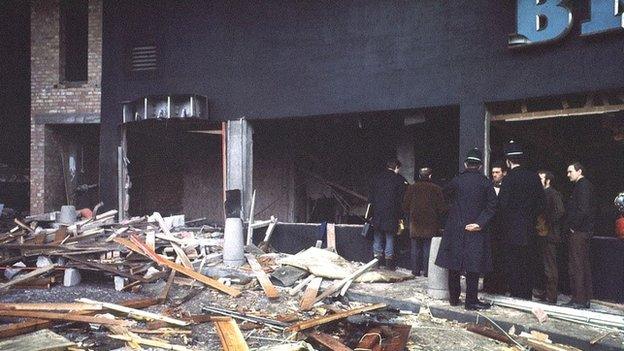
Twenty-one people were killed when bombs exploded at the Mulberry Bush and Tavern in the Town on 21 November 1974
It was the first time she and other members of her family had met the chief constable after first contacting him in 2009.
West Midlands Police's Counter Terrorism Unit has been reassessing evidence connected with the original 1974 inquiry as well as material from the Court of Appeal and other documents.
Mr Sims said 18,500 items had been collated and preserved, 9,000 of which were analysed.
"My professional judgement is that the 1991-94 investigation was carried out to a good standard," he said.
"I am sorry that families were not kept up to date or engaged with, as is standard practice today. Forty years ago was a different era and a different force."
Mr Sims said the case was not closed because "it is always possible that brand new and significant information could become available to us".
'Biggest unsolved murder'
BBC correspondent Anthony Bartram said there were angry scenes at West Midlands Police headquarters as the two sides argued over whether the entire Hambleton group, including two lawyers, would be allowed into the meeting.
Maxine's brother Brian Hambleton said: "Chris Sims has just rubber-stamped the fact that terrorists can come up to Birmingham, kill people and walk away.
"Birmingham is a soft touch for terrorists to come and carry out their arts, and they know the worst-case scenario is they might get arrested and sent to prison, they won't be sentenced to death."
Julie Hambleton described the bombings as England's "biggest unsolved murder of the 20th Century" and vowed to "continue to fight until justice is done".
"We're fighting for those who aren't here to fight for themselves," she said.
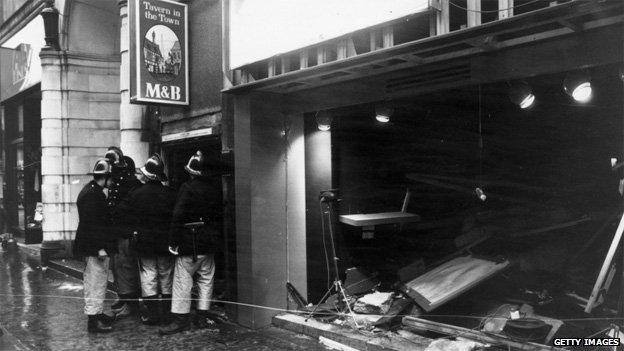
The two bombs went off 10 minutes apart in pubs a few yards from each other
She said that the police had told her 35 pieces of evidence were missing, including a third device that failed to explode on the night of the bombings.
Mr Sims said the force assumed the items had been disposed of in the 1980s "on the basis the case had been completed".
He said: "That feels utterly at odds with current procedure but was probably not as unusual at that time.
"We're not able to trace back when it happened and who was responsible."
Paddy Hill, who was one of six men wrongly jailed over the bombings, said he was angry but it was "what I expected".
He has set up an online petition calling for an independent inquiry.
He said: "I've said before to the relatives of those who died none of us are never ever going to get justice, it's a big cover-up.
"If we can get 100,000 signatures on the petition then we will be able to get a public inquiry or something. The truth is the very, very least we deserve."
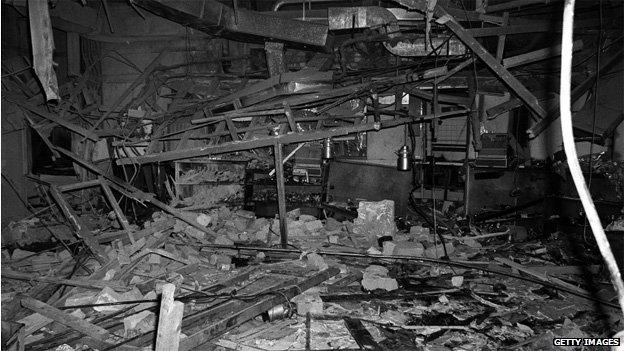
The Birmingham Six spent nearly 16 years in jail before their convictions were quashed
- Published27 November 2013
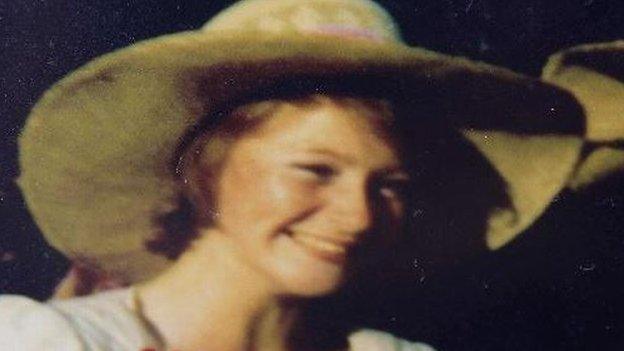
- Published14 March 2011
- Published21 November 2013
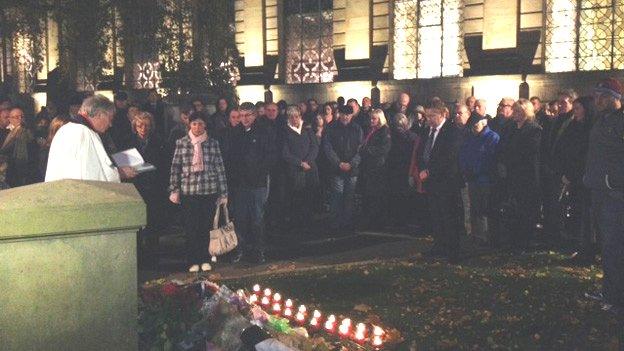
- Published19 November 2013

- Published16 November 2013
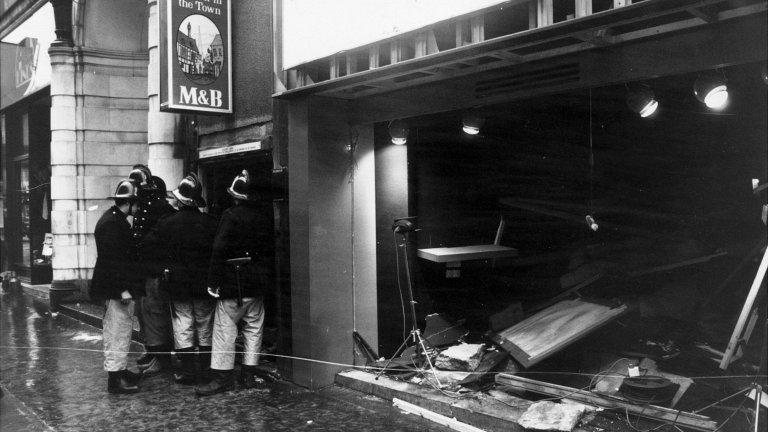
- Published15 February 2012
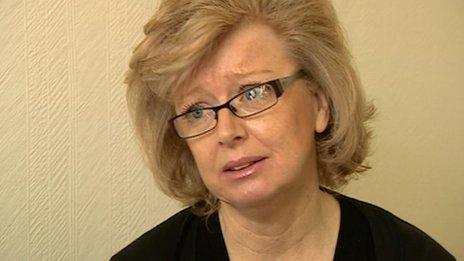
- Published14 March 2011